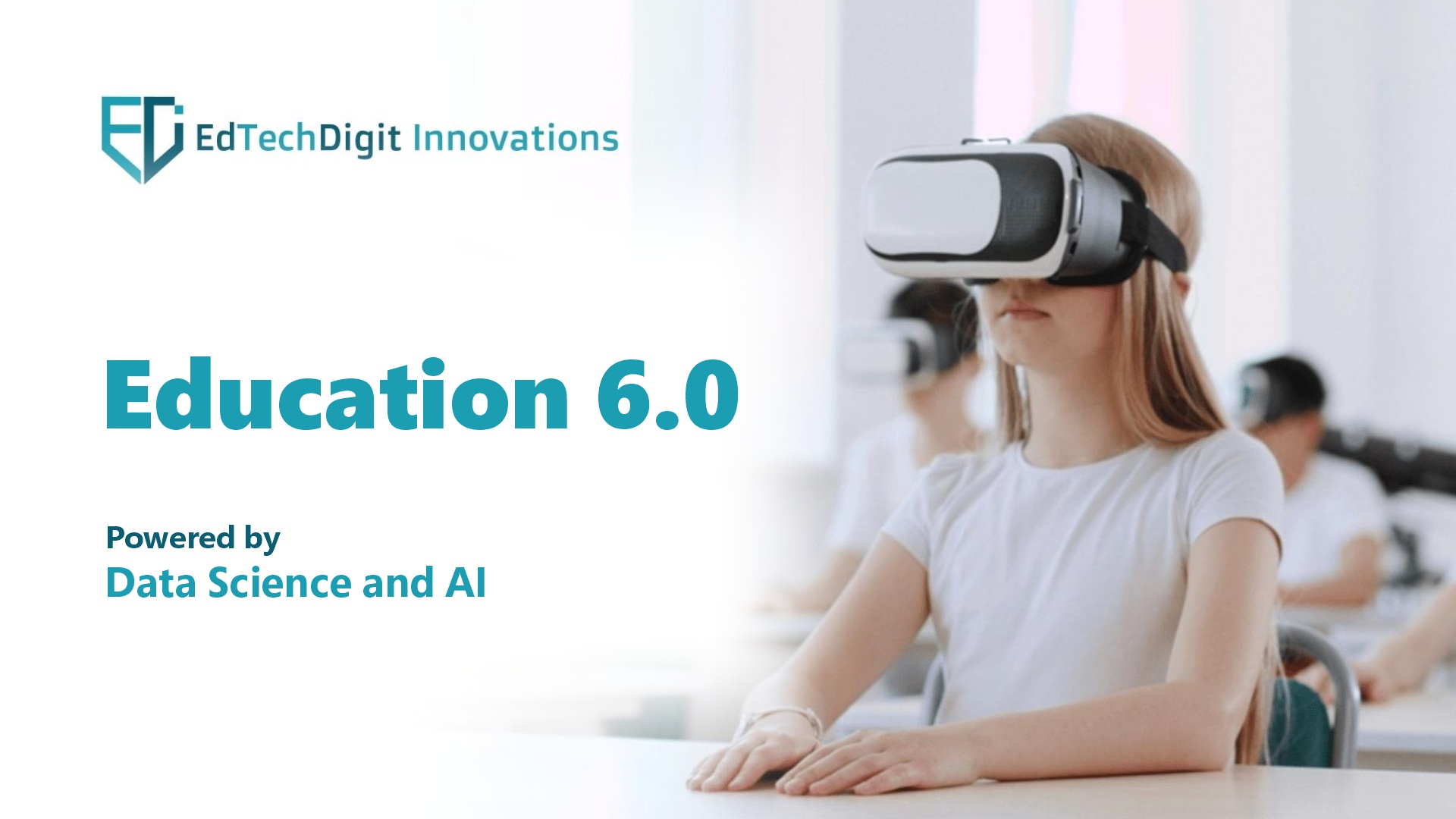Education has evolved from the generational ruins of learning in a cubical brick and cement classroom. Education has remained unchanged since artificial intelligence and data science emerged. No doubt, the recent advances have been quite beneficial. Nowadays, we read a lot about how artificial intelligence and data science have impacted the broader landscape of businesses and industries worldwide. AI is set to become an integral part of how education systems function, revolutionizing teaching methodologies, administrative processes, and learning experiences. Data science is also expected to see significant growth within the education sector in 2025. The growth triggers include personalized learning experiences, predictive analytics for student retention, and increased demand for educators with data science skills, leading to a need for more tech-education programs and upskilling initiatives to meet the growing industry requirements.

Looking at the stress levied on the education industry by global governmental organizations over time; necessitates understanding the way education evolved all this time. over the decades, the progression in the way education is imparted and taken has evolved drastically. It lays greater emphasis on the role of technology in education. Data science and AI education are leading the tech pack, with stupendous growth in smart chatbot technologies and data-deducing machines being devised. Let us understand the trajectory of Education 6.0, what it means, its beginnings, and the way forward!
Early Ruins
To understand the early beginnings of Education 6.0, let us take a quick rundown of the evolution of education:
Education 1.0 (Traditional- Old School)
- Focus on rote learning and memorization
- Teacher-centered approach
- Limited use of technology
Education 2.0 (E-Learning)
- Emergence of online learning platforms and digital resources
- Increased focus on student-centered learning
- Early adoption of learning management systems (LMS)
Education 3.0 (Social Learning)
- Rise of social media and online communities
- Increased focus on collaboration and social learning
- Emergence of MOOCs (Massive Open Online Courses)
Education 4.0 (Flipped Classroom)
- Flipped classroom model, where students learn at home and work on projects in class
- Increased focus on personalized learning and competency-based progression
- Greater use of digital tools and resources
Education 5.0 (Immersive Learning)
- Emergence of immersive technologies like VR, AR, and MR
- Increased focus on experiential learning and simulation-based training
- Greater emphasis on developing skills for the future of work
Education 6.0 (AI-Powered and Blockchain-Based)
- Integration of AI and machine learning to personalize learning pathways
- Use of blockchain to create secure, decentralized, and transparent learning platforms
- Increased focus on developing human skills, such as creativity, empathy, and critical thinking
The early beginnings of Education 6.0 are rooted in the convergence of emerging technologies, changing workforce demands, and the need for more effective and personalized learning experiences.
About Education 6.0
Education 6.0 refers to the current and future state of education, which is expected to be highly personalized, immersive, and powered by emerging technologies like AI, blockchain, and the Internet of Things (IoT). This smart evolution of things can conveniently be fostered by quality tech education programs that lead from the front.
Key Features of Education 6.0
- AI-powered adaptive learning: AI-driven systems that adjust to individual learning needs and abilities.
- Blockchain-based credentials: Secure, decentralized, and transparent storage and verification of learning credentials.
- Immersive and interactive learning: Use of VR, AR, MR, and other immersive technologies to create engaging and interactive learning experiences.
- Human-centered skills development: Focus on developing skills like creativity, empathy, and critical thinking.
- Lifelong learning and upskilling: Emphasis on continuous learning and upskilling to prepare for the future of work.
As Education 6.0 continues to evolve, we can expect to see even more innovative applications of technology and pedagogy to create highly effective and personalized learning experiences
Integrating the six principles with the six pillars of Education 6.0 can create a comprehensive and transformative learning ecosystem. Here is a potential integration:
Six Principles of Education 6.0
- Personalization: Tailoring learning experiences to individual needs and abilities.
- Immersive Learning: Using immersive technologies to create engaging and interactive learning experiences.
- Tech-Powered Learning: Leveraging AI, deep learning, machine learning, and data science to enhance learning outcomes.
- Human-Centered: Focusing on developing human skills like creativity, empathy, and critical thinking.
- Lifelong Learning: Emphasizing continuous learning and upskilling.
- Sustainability: Fostering environmentally conscious and sustainable practices.
Six Pillars of Education 6.0
|
Learning |
Teaching |
Assessment |
|
Infrastructure |
Community |
Governance |
The integrated framework offers a comprehensive approach to Education 6.0, addressing the complex interplay between principles, pillars, and learning ecosystems. Do not forget STEMMA; the ultimate driving force, encompassing Science, Technology, Engineering, Mathematics, Medicine, and Automation. It is strewn in to drive modern education and innovation forward. Education 6.0 promotes the use of project-based learning to provide immersive experiences in STEMMA fields. By working on real-world projects, students develop critical thinking, problem-solving, and collaboration skills. This hands-on approach not only enhances understanding but also prepares learners for the practical challenges they will face in their careers. This read clearly showcases a great mix of data science and AI learning; playing their parts quite efficiently in leveraging the highest possible benefits for education over time.

